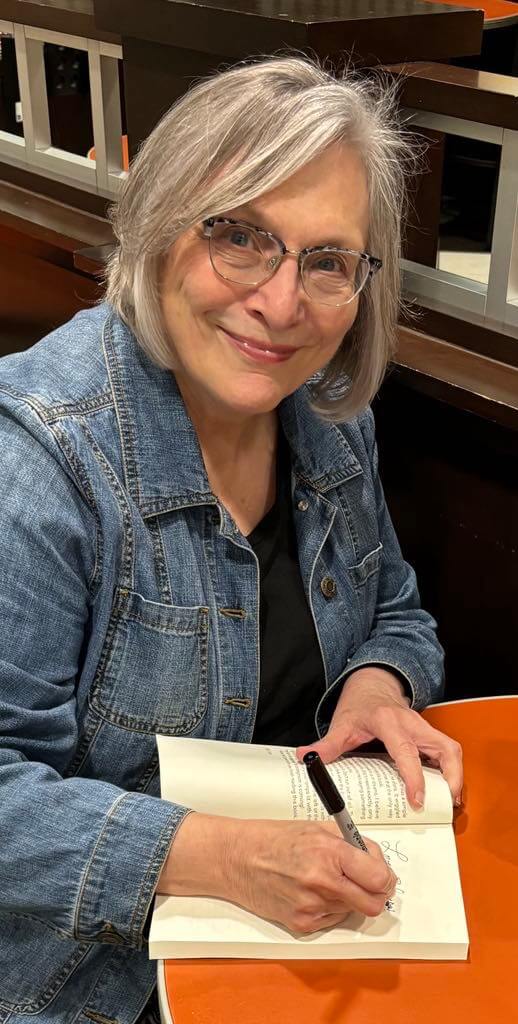Yoder: Seeing through the darkness: Bartimaeus’ cry for today
By Kathy Yoder
The story of Blind Bartimaeus is a story for us all—especially in these turbulent days. At first glance, we might wonder, “What could I possibly have in common with a blind beggar?” Yet as violence grips our headlines—from the recent tragic assassination of conservative activist Charlie Kirk, to the senseless stabbing of young Ukrainian refugee Iryna Zarutska in August aboard a Charlotte light rail train, where she fled war only to meet horror here—Bartimaeus reminds us that we all cry out from the roadside, unseen and desperate, in a world that feels increasingly blind to human dignity.
Jesus and his disciples pass blind Bartimaeus begging by the side of the road. When he hears that Jesus is near, he yells, “Jesus, Son of David, have mercy on me!” (Mark 10:47). In a nation reeling from a surge in political violence and mass shootings, Bartimaeus’ raw plea echoes our own. How many more must fall, like Charlie Kirk, gunned down for his voice in the public square, or Iryna, a 23-year-old seeking safety in America, stabbed in an unprovoked attack that has ignited national fury over crime and justice? These are not distant statistics; they are sons and daughters, neighbors and dreamers, reduced to victims in a landscape of hate.

Jesus doesn’t see Bartimaeus as the blind beggar, but as a whole person. In the wake of Charlie Kirk’s killing and Iryna Zarutska’s brutal end, we’re called to see beyond the headlines. These aren’t just activists or refugees—they’re image-bearers of God, whose stories demand our compassionate gaze amid unrest that experts warn could inspire copycats.
Have you ever felt like you were seen just for your circumstances? Today, that sting resonates nationally: families shattered by random stabbings on public transit, political figures silenced by bullets, communities gripped by fear as hate crimes hit record highs. People see the “blind beggar” in each story—the migrant, the conservative voice, the everyday commuter—and dismiss them as part of the fractured landscape. But God sees the person beneath.
People see Bartimaeus, thinking, “Oh, there’s that blind beggar again.” Bartimaeus knows that people see him as less than who they are. Trying to quiet him, he cries out all the more. “Son of David, have mercy on me!” (Mark 10:48). In our divided country, voices are shouted down too—protests turn violent and the cycle of retaliation spins faster. Yet Bartimaeus persists, a model for us as we mourn Charlie and Iryna, refusing to let their cries be silenced.
Have you cried out to the Lord like a blind beggar alongside the road? As we mourn for Kirk, Zarutska, and so many others, we stand at that crossroads, exhausted by the news, yearning for mercy in a mercy-less age.
Then Jesus stops. He hears Bartimaeus’ cries and calls for him (Mark 10:49). Bartimaeus throws aside his coat, jumps up, and comes to Jesus (Mark 10:50). He tosses his coat because it’s slowing him down. To get to Jesus, are you willing to throw aside anything that gets in the way? You might ask, “What do I have to relinquish?” In this season of national grief, consider:
Pride. That false belief that we can do anything on our own—that politics or policies alone can heal our land. We forget who created the very ground we fight over.
Loneliness. That feeling that no one cares. Jesus cares. He’s a friend who sticks closer than a brother (Proverbs 18:24), even as we navigate a society where violence isolates us further.
Emptiness. Knowing deep down that something’s missing and nothing ever fills it up—neither partisan victories nor fleeting outrage. Money, drugs, entertainment, or even a beloved family can’t. Only Jesus can, offering hope amid the despair of lost lives like Charlie’s and Iryna’s.
Sin. We’re all sinners, but when we’re born again, we’re changed. We desire to become like Jesus and to bear fruit. We want our lives to show that we’re followers of Jesus.
We were created to love and worship God. There are no substitutions. Just like Jesus didn’t substitute anyone to die on the cross for our sins, no one else can fill the void that exists when we don’t know Him. As our country grapples with more and more violence, let’s not turn to division, but to the One who binds wounds.
Jesus asks Bartimaeus, “What do you want me to do for you?” Bartimaeus says, “My Rabbi … I want to see” (Mark 10:51). “And Jesus said to him, ‘Go, for your faith has healed you.’ Instantly, the man could see, and he followed Jesus down the road” (Mark 10:52). No longer physically blind, Bartimaeus also has spiritual sight.
There are many things to follow in this world—the clamor of blame, the lure of retaliation—but we need to be like Bartimaeus. To first call out, “Jesus, have mercy on me!” Next, throw aside all that’s in-between Jesus and us. Then run to Him! In the shadow of these fresh tragedies, may this sight lead us to follow Him toward justice, healing, and a nation restored.
“…Let us throw off everything that hinders and the sin that so easily entangles. And let us run with perseverance the race marked out for us, fixing our eyes on Jesus, the pioneer and perfecter of faith. For the joy set before him he endured the cross, scorning its shame, and sat down at the right hand of the throne of God” (Hebrews 12:1-2).
Kathy Yoder is a devotional writer and Christian author. She may be reached at kathyyoder4@gmail.com and Kathyyoder.com.
[vitalitsouth-ads]






